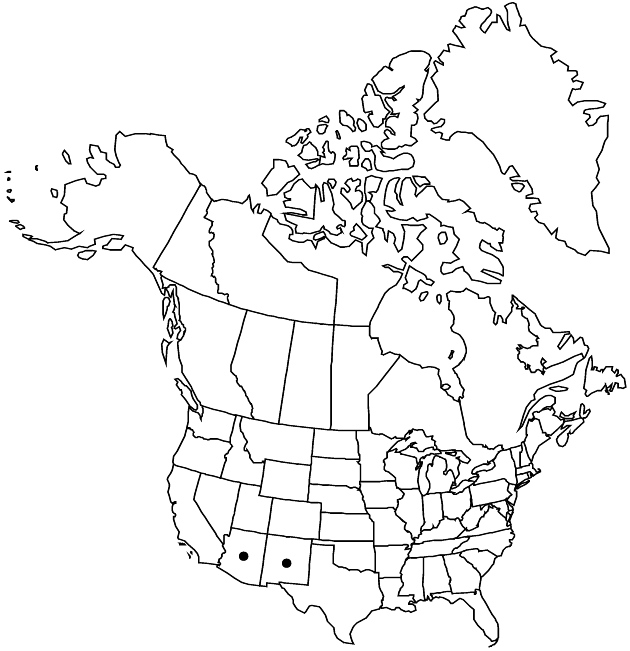Brickellia venosa
Mem. Gray Herb. 1: 50. 1917.
Perennials, 60–80 cm (caudices woody). Stems branched, pubescent, gland-dotted. Leaves opposite; petioles 0–1 mm; blades 3-nerved from bases, oblong to linear, 20–60 × 2–10 mm, bases cuneate, margins entire or dentate, apices obtuse, faces pubescent, gland-dotted. Heads in open, paniculiform arrays or borne singly (often terminal on lateral branches). Peduncles (20–)30–150 mm, puberulent, gland-dotted. Involucres cylindric to campanulate, 9–10 mm. Phyllaries 25–35 in 6–9 series, greenish, often purple-tinged, 3–9-striate, unequal, margins scarious (ciliate); outer broadly ovate to orbiculate (glandular-pubescent, apices acute to cuspidate), inner lanceolate to linear-lanceolate (glabrous, apices acute to mucronate). Florets 18–25; corollas pale yellow, often purple-tinged, 5.5–7 mm. Cypselae 3–3.5 mm, pubescent to velutinous; pappi of 30–40 white, barbellate bristles. 2n = 18, 18 + 1.
Phenology: Flowering Aug–Oct.
Habitat: Dry hills, canyon walls, mesas, limestone outcrops
Elevation: 1300–1800 m
Distribution

Ariz., N.Mex., Mexico.
Discussion
Selected References
None.